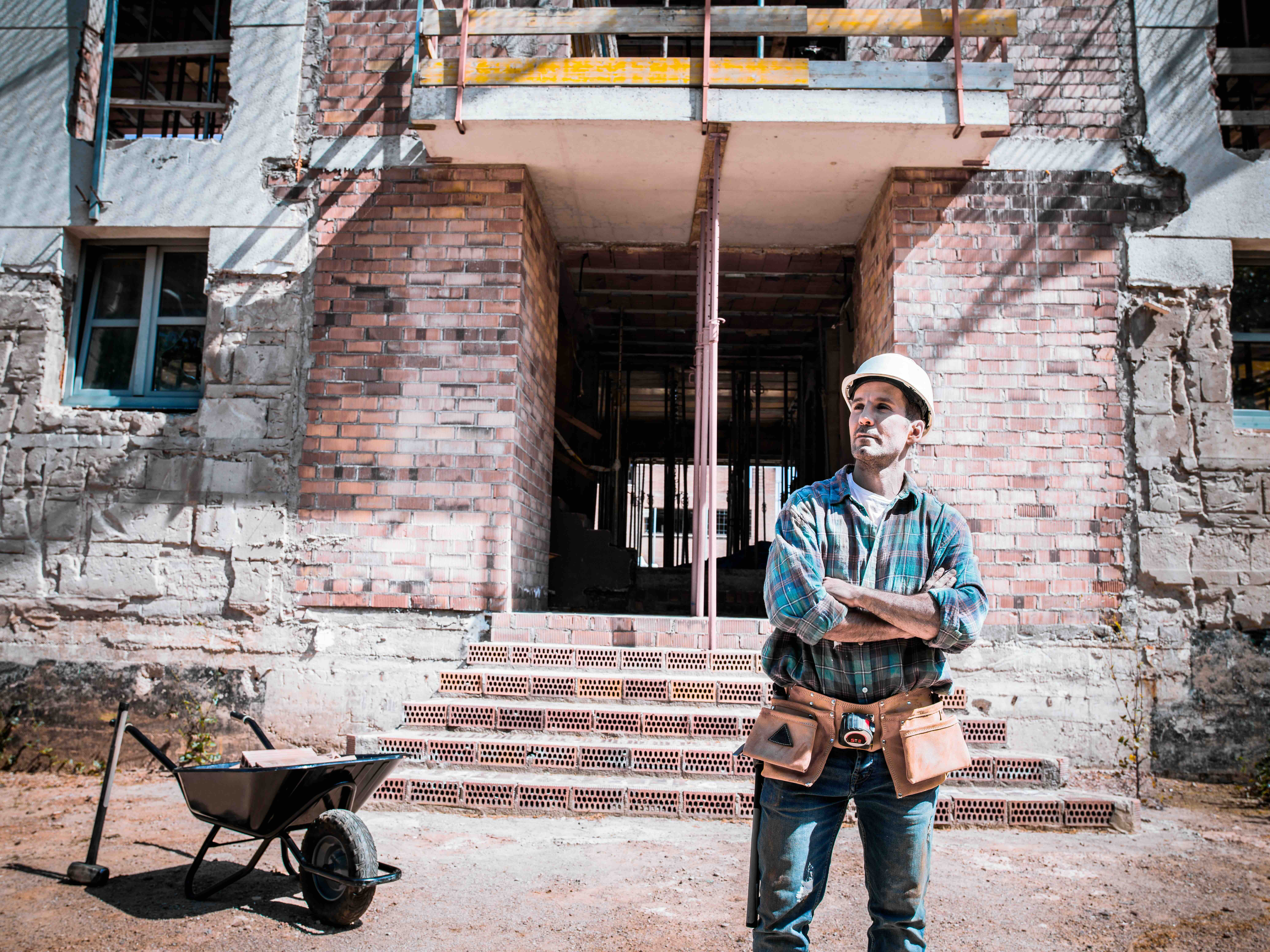Choosing the Right General Contractor in Long Beach
Embarking on a home renovation in Long Beach is an exciting opportunity to reimagine your living space, but the journey begins with a crucial first step: selecting the right general contractor. With so many options available, how do you ensure you're making the best choice? This ultimate guide will illuminate the key factors to consider, from evaluating experience and expertise to assessing communication styles and project timelines. Your home deserves a contractor who not only understands your vision but also brings it to life with precision and care. Whether you're planning a kitchen remodel, bathroom update, or a complete home overhaul, making an informed decision can mean the difference between a successful renovation and a series of costly mistakes. Dive into our comprehensive insights, tips, and tricks that will empower you to navigate the contractor selection process with confidence, setting the foundation for a stress-free and rewarding renovation experience!

Understanding the Role of a General Contractor
A general contractor (GC) is a pivotal figure in any home renovation project. They oversee the entire process, from planning and permits to the execution and completion of the work. Think of a general contractor as the conductor of an orchestra, ensuring that every element of the renovation harmonizes perfectly. They coordinate with subcontractors, such as electricians, plumbers, and carpenters, to make sure every aspect of the project is completed to the highest standards.
One of the primary responsibilities of a general contractor is to manage the project timeline. They create a schedule that outlines each phase of the renovation, ensuring that everything progresses smoothly and efficiently. This involves not only overseeing the day-to-day activities but also anticipating potential delays and finding solutions to keep the project on track. By having a clear timeline, the GC helps to minimize disruptions and ensures that the renovation is completed within the agreed-upon timeframe.
Another crucial role of a general contractor is to maintain budget control. They provide a detailed estimate at the outset, outlining the costs for materials, labor, and any other expenses. Throughout the project, they monitor expenditures and manage resources to prevent cost overruns. By keeping a close eye on the budget, a good GC ensures that the project remains financially viable and that there are no unpleasant surprises when it comes to the final bill.
Why Hiring a Local Contractor Matters
Hiring a local contractor in Long Beach comes with several distinct advantages. Firstly, a local contractor has a deep understanding of the area's building codes and regulations. They are familiar with the specific requirements of Long Beach and can navigate the permitting process with ease. This local expertise helps to avoid any legal complications that could arise from non-compliance with local building standards.
Another benefit of hiring a local contractor is their established network of suppliers and subcontractors. Local contractors often have long-standing relationships with trusted vendors, which can result in better pricing and faster delivery times for materials. Additionally, they have a pool of reliable subcontractors who are familiar with the contractor's standards and expectations, ensuring a higher quality of workmanship throughout the project.
Furthermore, a local contractor is more likely to be invested in the community. Their reputation is built on the satisfaction of local clients, so they are motivated to deliver exceptional results. You can easily find reviews and testimonials from other Long Beach residents who have used their services, providing valuable insights into the contractor's reliability and performance. This community connection can also mean better accountability and a higher level of customer service, as local contractors strive to maintain their good standing within the area.

Key Qualities to Look for in a General Contractor
When selecting a general contractor, there are several key qualities you should prioritize to ensure a successful renovation. Experience is paramount; a seasoned contractor brings a wealth of knowledge and expertise to the table. They have encountered and overcome various challenges in past projects, equipping them to handle any issues that may arise during your renovation. Look for a contractor with a proven track record in the type of renovation you are planning, as this specific experience is invaluable.
Another critical quality is reliability. You need a contractor who shows up on time, keeps their promises, and completes the work as agreed. Reliability also extends to their team and subcontractors, ensuring that everyone involved in the project is dependable and committed to delivering high-quality results. Checking references and reading reviews can give you a sense of the contractor's reliability and how they manage their projects.
Effective communication is also essential. A good general contractor listens to your ideas, provides clear explanations, and keeps you informed throughout the project. They should be approachable and responsive, addressing your concerns promptly and professionally. This open line of communication helps to build trust and ensures that your vision for the renovation is accurately translated into reality. An excellent contractor will prioritize your satisfaction and work collaboratively with you to achieve your goals.
How to Research and Vet Potential Contractors
Researching and vetting potential contractors is a crucial step in ensuring you hire the best professional for your renovation. Start by seeking recommendations from friends, family, and neighbors who have recently completed similar projects. Personal referrals can provide honest insights into the contractor's performance and reliability. Additionally, online platforms such as Yelp, Angie's List, and the Better Business Bureau offer reviews and ratings that can help you gauge the contractor's reputation.
Once you have a shortlist of potential contractors, take the time to review their portfolios. A reputable contractor will have a gallery of past projects that showcase their work. Look for projects similar to yours to assess their experience and capability. Pay attention to the quality of craftsmanship, the range of styles they have executed, and any unique features that stand out. A diverse portfolio indicates versatility and a willingness to adapt to different client needs.
Next, verify the contractor's credentials. Ensure they hold the necessary licenses and certifications required by the state of California. Licensing not only demonstrates their professionalism but also ensures they adhere to industry standards and regulations. Additionally, check if they are members of any professional organizations, such as the National Association of Home Builders or the Associated General Contractors of America. Membership in these organizations often signifies a commitment to ongoing education and adherence to ethical practices.

Questions to Ask During the Interview Process
The interview process is your opportunity to dig deeper into the contractor's qualifications and approach to your project. Begin by asking about their experience with projects similar to yours. Inquire about the challenges they faced and how they overcame them. This will give you an idea of their problem-solving skills and their ability to handle potential issues that may arise during your renovation.
Another important question is about their availability. Ask about their current workload and when they would be able to start your project. It's essential to have a clear understanding of their timeline and how it aligns with your expectations. Additionally, inquire about the duration of the project and any factors that could potentially cause delays. Knowing this upfront can help you plan accordingly and set realistic expectations.
Communication is key to a successful renovation, so ask how the contractor plans to keep you updated throughout the project. Will there be regular meetings, progress reports, or a dedicated point of contact? Understanding their communication style and frequency will ensure that you stay informed and can promptly address any concerns. Also, discuss how they handle changes or unexpected issues during the project. A good contractor should have a clear process for managing changes and keeping the project on track.
Understanding Contractor Licensing and Insurance
Ensuring that your general contractor is properly licensed and insured is critical for protecting both your investment and your property. In California, contractors must hold a valid license issued by the Contractors State License Board (CSLB). This licensing process requires contractors to pass exams that test their knowledge of building codes, business practices, and safety regulations. Hiring a licensed contractor assures you that they have met the state's professional standards and are qualified to perform the work.
Insurance is equally important. A reputable contractor should carry both general liability insurance and workers' compensation insurance. General liability insurance protects you from financial loss if the contractor causes damage to your property during the renovation. Workers' compensation insurance covers medical expenses and lost wages for any workers injured on the job. Without these insurances, you could be held financially responsible for accidents or damages that occur during the project.
Before hiring a contractor, ask for proof of their license and insurance. Verify the details with the CSLB and the insurance providers to ensure they are current and valid. This due diligence is crucial for your peace of mind and financial protection. Additionally, some contractors may offer additional bonds, which provide further financial security by guaranteeing the completion of the project or the correction of any defects. Understanding the contractor's licensing and insurance status helps you make an informed decision and safeguards your renovation investment.

The Importance of Contracts and Written Agreements
A detailed contract is the foundation of a successful renovation project. It sets clear expectations and provides a legal framework for the work to be completed. A comprehensive contract should include a detailed scope of work, specifying all tasks to be performed, materials to be used, and any other relevant details. This clarity helps to avoid misunderstandings and ensures that both parties are on the same page regarding the project's requirements.
The contract should also outline the project timeline, including start and completion dates, as well as any milestones or deadlines for specific phases of the work. This provides a clear schedule for the project and helps to manage expectations. Additionally, the contract should include a payment schedule, detailing the amounts and due dates for each installment. Tying payments to specific milestones ensures that the contractor is incentivized to stay on track and complete the work as agreed.
Another critical element of the contract is the inclusion of any warranties or guarantees. This covers the quality of workmanship and materials used in the project. Warranties provide assurance that any defects or issues will be addressed by the contractor within a specified period. Finally, the contract should include a clause for handling changes or unexpected issues that may arise during the renovation. Having a clear process for managing changes helps to prevent disputes and ensures that the project can proceed smoothly.

Budgeting for Your Renovation Project
Creating a realistic budget is a crucial step in planning your home renovation. Start by determining your overall budget, considering your financial situation and how much you are willing to invest in the project. It's important to have a clear understanding of your financial limits to avoid overspending and financial stress. Once you have a budget in mind, discuss it with your contractor to ensure that your renovation goals are achievable within that budget.
Work with your contractor to create a detailed estimate that breaks down the costs of materials, labor, permits, and any other expenses. This estimate should be as comprehensive as possible, including all potential costs to avoid surprises later on. Be sure to include a contingency fund in your budget, typically around 10-20% of the total project cost. This fund will cover any unexpected expenses or changes that arise during the renovation, providing a financial cushion to keep the project on track.
Throughout the project, closely monitor your spending to ensure you stay within your budget. Keep track of all expenses and compare them to the original estimate. This will help you identify any areas where costs may be exceeding expectations and make necessary adjustments. Regularly reviewing your budget with your contractor ensures that you remain in control of your finances and can make informed decisions to keep the project within your financial limits.
Tips for Maintaining Communication Throughout the Project
Effective communication is essential for a smooth and successful renovation. Establishing clear lines of communication with your contractor from the outset sets the tone for the entire project. Discuss your preferred methods of communication, whether it's phone calls, emails, or in-person meetings, and agree on a schedule for regular updates. This ensures that you stay informed about the progress of the project and can address any concerns promptly.
Regular meetings with your contractor are an excellent way to maintain communication and keep the project on track. These meetings provide an opportunity to review the progress, discuss any issues, and make decisions about the next steps. Having a set agenda for each meeting ensures that all relevant topics are covered and that the meetings are productive. Additionally, keeping detailed notes from these meetings creates a record of decisions and agreements that can be referenced later if needed.
It's also important to establish a process for handling changes or unexpected issues. Renovations often involve unforeseen challenges, and having a clear plan for managing them ensures that they are addressed promptly and effectively. Discuss how changes will be communicated, approved, and documented to avoid misunderstandings. By maintaining open and transparent communication throughout the project, you can ensure that your renovation progresses smoothly and that any issues are resolved quickly.
Conclusion: Making an Informed Decision for Your Home Renovation
Choosing the right general contractor in Long Beach is a critical step in ensuring a successful home renovation. By understanding the role of a general contractor and the importance of hiring locally, you can make an informed decision that benefits your project. Prioritizing key qualities such as experience, reliability, and communication skills helps you select a contractor who aligns with your vision and expectations.
Thoroughly researching and vetting potential contractors, asking the right questions during the interview process, and verifying licensing and insurance are essential steps in protecting your investment. A detailed contract and a realistic budget provide a solid foundation for the project, while effective communication ensures that everything progresses smoothly.
By following these comprehensive insights, tips, and tricks, you are empowered to navigate the contractor selection process with confidence. Making an informed decision sets the stage for a stress-free and rewarding renovation experience, ultimately bringing your vision for your home to life with precision and care.
At Shore Construction, we're determined to bring renovation dreams to reality. Our only question is, will it be yours?
Shore Construction is a fully licensed general contractor specializing in luxury custom kitchen and bathroom design-builds.
40 years of business
serving Long Beach, Belmont Shores, and Naples as well as and coastal estates from Palos Verdes to Huntington Beach.
Offering exceptional craftsmanship, customer service, and in-house custom carpentry to personalize designs and distinguish homes for decades.
· Choosing the Right Contractor
· The Role of a General Contractor
· Why Hiring a Contractor Matters
· Key Qualities to Look for
· How to Research and Vet
· Questions to Ask
· Licensing and Insurance
· Contracts and Written Agreements
· Budgeting
· Tips for Communication
· Conclusion
At Shore Construction, we're determined to bring renovation dreams to reality. Our only question is, will it be yours?